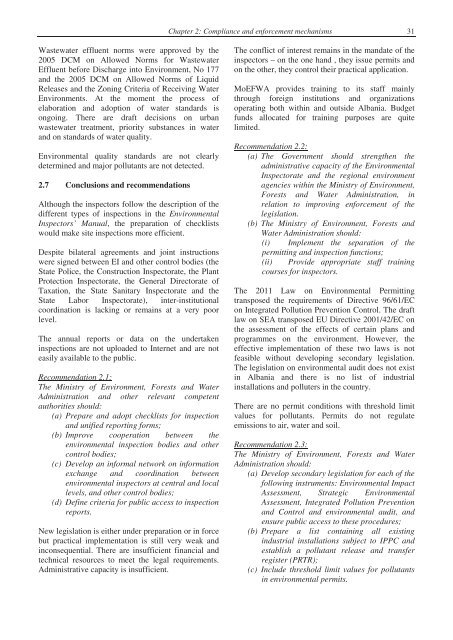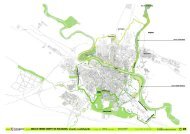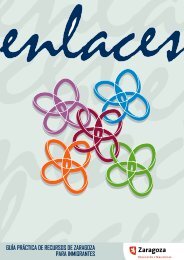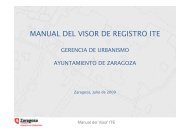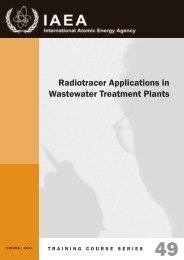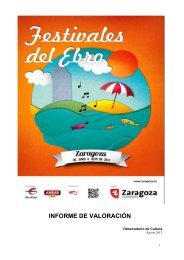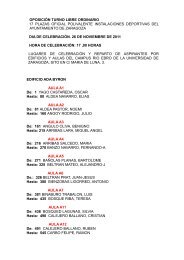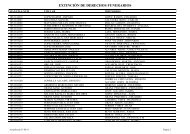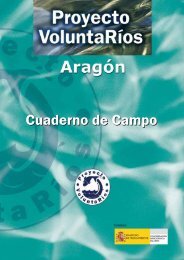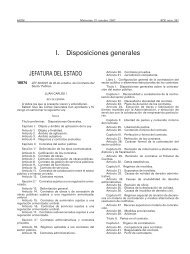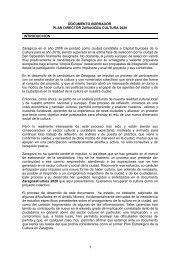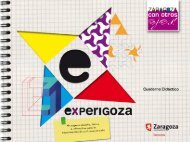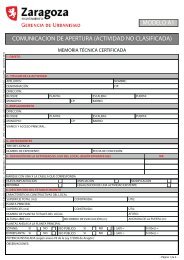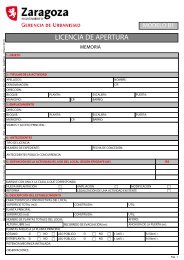Second Environmental Performance Review of Albania
Second Environmental Performance Review of Albania
Second Environmental Performance Review of Albania
Create successful ePaper yourself
Turn your PDF publications into a flip-book with our unique Google optimized e-Paper software.
Chapter 2: Compliance and enforcement mechanisms31Wastewater effluent norms were approved by the2005 DCM on Allowed Norms for WastewaterEffluent before Discharge into Environment, No 177and the 2005 DCM on Allowed Norms <strong>of</strong> LiquidReleases and the Zoning Criteria <strong>of</strong> Receiving WaterEnvironments. At the moment the process <strong>of</strong>elaboration and adoption <strong>of</strong> water standards isongoing. There are draft decisions on urbanwastewater treatment, priority substances in waterand on standards <strong>of</strong> water quality.<strong>Environmental</strong> quality standards are not clearlydetermined and major pollutants are not detected.2.7 Conclusions and recommendationsAlthough the inspectors follow the description <strong>of</strong> thedifferent types <strong>of</strong> inspections in the <strong>Environmental</strong>Inspectors’ Manual, the preparation <strong>of</strong> checklistswould make site inspections more efficient.Despite bilateral agreements and joint instructionswere signed between EI and other control bodies (theState Police, the Construction Inspectorate, the PlantProtection Inspectorate, the General Directorate <strong>of</strong>Taxation, the State Sanitary Inspectorate and theState Labor Inspectorate), inter-institutionalcoordination is lacking or remains at a very poorlevel.The annual reports or data on the undertakeninspections are not uploaded to Internet and are noteasily available to the public.Recommendation 2.1:The Ministry <strong>of</strong> Environment, Forests and WaterAdministration and other relevant competentauthorities should:(a) Prepare and adopt checklists for inspectionand unified reporting forms;(b) Improve cooperation between theenvironmental inspection bodies and othercontrol bodies;(c) Develop an informal network on informationexchange and coordination betweenenvironmental inspectors at central and locallevels, and other control bodies;(d) Define criteria for public access to inspectionreports.New legislation is either under preparation or in forcebut practical implementation is still very weak andinconsequential. There are insufficient financial andtechnical resources to meet the legal requirements.Administrative capacity is insufficient.The conflict <strong>of</strong> interest remains in the mandate <strong>of</strong> theinspectors – on the one hand , they issue permits andon the other, they control their practical application.MoEFWA provides training to its staff mainlythrough foreign institutions and organizationsoperating both within and outside <strong>Albania</strong>. Budgetfunds allocated for training purposes are quitelimited.Recommendation 2.2:(a) The Government should strengthen theadministrative capacity <strong>of</strong> the <strong>Environmental</strong>Inspectorate and the regional environmentagencies within the Ministry <strong>of</strong> Environment,Forests and Water Administration, inrelation to improving enforcement <strong>of</strong> thelegislation.(b) The Ministry <strong>of</strong> Environment, Forests andWater Administration should:(i) Implement the separation <strong>of</strong> thepermitting and inspection functions;(ii) Provide appropriate staff trainingcourses for inspectors.The 2011 Law on <strong>Environmental</strong> Permittingtransposed the requirements <strong>of</strong> Directive 96/61/ECon Integrated Pollution Prevention Control. The draftlaw on SEA transposed EU Directive 2001/42/EC onthe assessment <strong>of</strong> the effects <strong>of</strong> certain plans andprogrammes on the environment. However, theeffective implementation <strong>of</strong> these two laws is notfeasible without developing secondary legislation.The legislation on environmental audit does not existin <strong>Albania</strong> and there is no list <strong>of</strong> industrialinstallations and polluters in the country.There are no permit conditions with threshold limitvalues for pollutants. Permits do not regulateemissions to air, water and soil.Recommendation 2.3:The Ministry <strong>of</strong> Environment, Forests and WaterAdministration should:(a) Develop secondary legislation for each <strong>of</strong> thefollowing instruments: <strong>Environmental</strong> ImpactAssessment, Strategic <strong>Environmental</strong>Assessment, Integrated Pollution Preventionand Control and environmental audit, andensure public access to these procedures;(b) Prepare a list containing all existingindustrial installations subject to IPPC andestablish a pollutant release and transferregister (PRTR);(c) Include threshold limit values for pollutantsin environmental permits.


